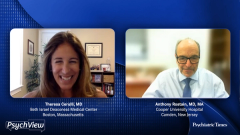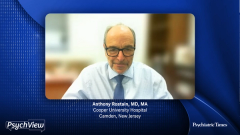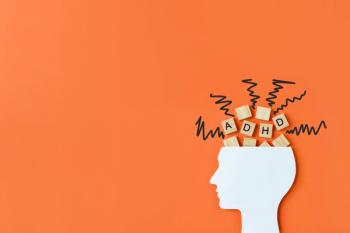
Signs and Symptoms of Adult ADHD
Anthony Rostain, MD, MA, describes some of the signs and symptoms of adult attention-deficit/hyperactivity disorder (ADHD), as well as the impact on psychosocial skills.
Episodes in this series

Theresa Cerulli, MD: What signs and symptoms prompt testing for ADHD [attention-deficit/hyperactivity disorder] in adults?
Anthony Rostain, MD, MA: I think the fact that most adults with ADHD have trouble with just everything from managing time and getting things done and following directions and even procrastination. These are very frustrating for people. There's also the impulsivity side managing emotions and being able to think before you speak, or not just jump into a million different directions, but to really be able to handle frustration for example, and not getting into too many traffic accidents or getting speeding tickets. All these things are signs of ADHD in adults.
And I think too often people will blame themselves or people will tell them just get with it. And in fact, this is not something that people aren't trying on their own to manage. From a psychosocial standpoint also relationships with family members, friends, and colleagues at work, can be really strained because of the person's ADHD. They'll forget important appointments, they'll interrupt people, they'll be seen as insensitive and flighty, and a lot of social rejection goes on. And it's been obvious that as we look at data from, say the National Epidemiologic Study that shows that the number 1 comorbidity of adults with ADHD is social anxiety disorder. And that's based, I think, a lot on having repeated experiences of social rejection or social failure.
Theresa Cerulli, MD: It brings to mind a conversation I just had with one of my adult patients last evening, with regard to the pressure his ADHD diagnosis has put on his marriage. Because when someone's bright and otherwise holding down a job, his children and seemingly functioning 'fine,’ the other partners and those involved, close loved ones, don't necessarily see what it's like –
Anthony Rostain, MD, MA: I know. You're so unforgiving. You're so smart.
Theresa Cerulli, MD: It's really challenging. The divorce rate is twice as high when one member has ADHD, there's a lot of things. So outside of just school problems and work problems, I hope that people walk away understanding that ADHD is a problem with regulating attention, self-regulating behavior, and control of one's thoughts in terms of organizing, planning, and time management. It affects everything.
Anthony Rostain, MD, MA: Oftentimes psychiatrists may attribute this to, say, things like a narcissistic personality disorder or even other cluster B kinds of disorders, when in fact the underlying self-regulation being the problem does lead to people having trouble acting in a way that we could say is either socially appropriate or mature enough for their age. So, they are very much in the doghouse. And of course, the other piece is that they feel low self-esteem as a result of this. So, there is a chronic sense of being inadequate, defective, and in some other way not meeting others’ expectations, which again leads to some unfortunate coping mechanisms such as over-reliance on alcohol or substances, a tendency to overcommit, and not be able to really deliver. And feeling constantly stressed out.
Transcript Edited for Clarity
Newsletter
Receive trusted psychiatric news, expert analysis, and clinical insights — subscribe today to support your practice and your patients.









